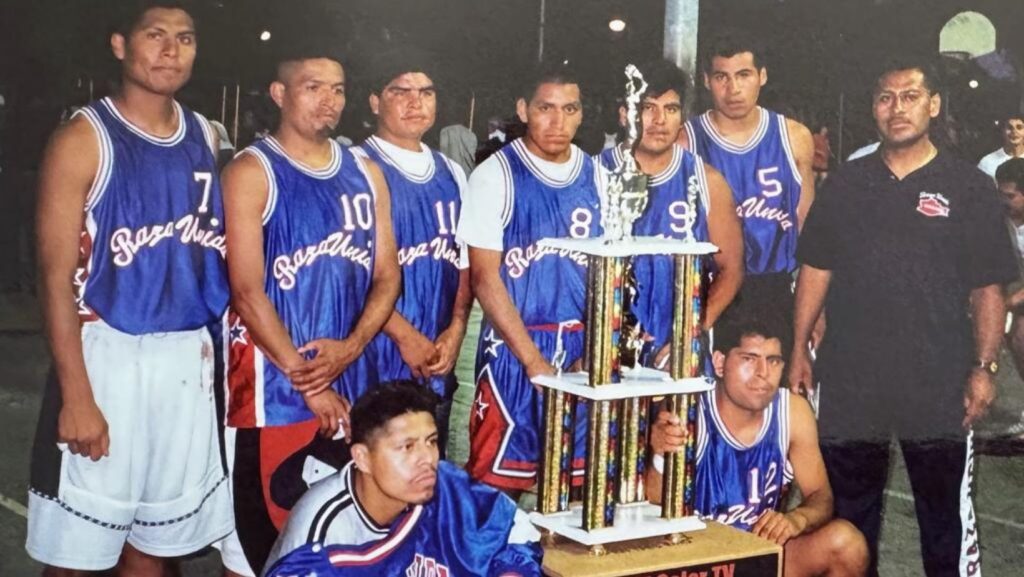
In the Heart of Los Angeles
In the heart of Los Angeles, a remarkable team has emerged, transcending cultural boundaries and weaving a tapestry of passion and dedication on the basketball court.
Raza Unida, the first and only Zapoteco team in the city, is not just a team; it’s a testament to the power of unity and the relentless pursuit of dreams.
The narrative unfolds with the introduction of the team’s diverse members, hailing from different villages yet bound by a common love for the game.
The Aquino brothers from Union Zapata, including the towering Nacho, and Abel Jimenez from Matatlán form the core of this extraordinary team. These hardworking individuals, employed in Westside restaurants, bring their unique skills to the court, creating a synergy that goes beyond the game.
At the heart of Raza Unida is the indomitable Pancho Morales, a scrappy general who juggles his roles as a busboy at Joe’s Restaurant in Santa Monica and a dynamic player on the court. Pancho’s story mirrors his boyhood hero, Magic Johnson, and reflects the ethos of the team. The sacrifices made, the injuries endured – all fade in comparison to the love for family and the game.
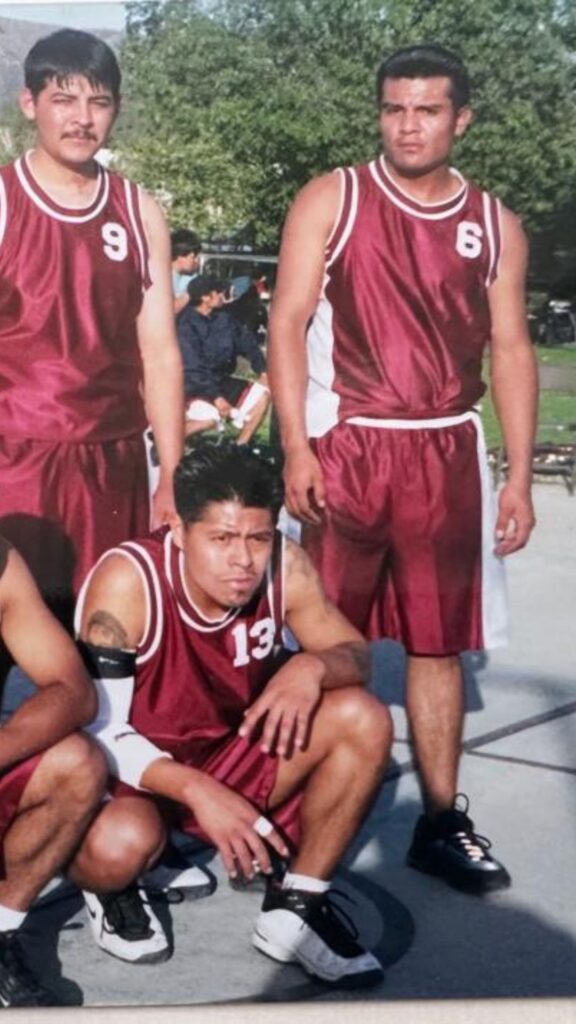
The emotional connection between Pancho and Zeus, who affectionately calls him “my son,” adds a layer of depth to the narrative. Zeus sees beyond the injuries; he sees basketball coursing through Pancho’s veins. A poignant moment is shared when Pancho, against Zeus’s advice, defies the odds, plays through pain, and leads the team to victory. It’s a tale that tugs at the heartstrings, showcasing the resilience that defines Raza Unida.
Delving into the world of Oaxacan basketball, the team’s commitment, evident in their sharp uniforms that set them apart. The sacrifices made to participate in tournaments, including players missing work and facing unemployment, underline the unwavering dedication to the sport.
In the end, Raza Unida stands not just as a basketball team but as a symbol of inspiration. Their story transcends the boundaries of the court, resonating with anyone who has faced adversity and pursued their passion against all odds. It’s a story of triumph, of a community coming together, and of the unyielding spirit that makes Raza Unida truly special in the world of Oaxacan basketball.

Bridging Divides through Basketball: Raza Unida's Journey of Triumph and Unity

A zapotec with L.A. Heart
In the heart of Zapoteco L.A., a peculiar tale unfolds – one of triumph over longstanding prejudices and the forging of an unexpected bond. Raza Unida, a team with roots deeply embedded in Oaxaca’s lowlands, stands tall on courts traditionally dominated by highlanders. The journey is a testament to the resilience of a community fractured by habit and tradition, where the divisions between highlanders and lowlanders are as deep as the roots that bind them.
The clash between these two groups isn’t merely about basketball; it’s a reflection of a society divided by geography, affluence, and the struggle for recognition. Highlanders, residing closer to the state government and enjoying relative affluence, have historically excelled on high-quality courts, shaping themselves into formidable athletes. On the other hand, lowlanders, rooted in the flatlands, found their niche in the humbler professions of busboys, cooks, and dishwashers on the Westside. The courts at Normandie Park, a gathering spot for the highlanders near Koreatown, stood in stark contrast to the Westside pursuits of the lowlanders.
The paradox emerges
The tale takes an intriguing turn as Raza Unida, against the odds, begins to dismantle these barriers. In a city where prejudice is etched into the very fabric of daily life, Zeus, the visionary behind the team, faces unexpected challenges as the team’s success outpaces their dreams. The paradox emerges – the team’s triumph becomes a threat to its very existence. As the two-year-old success story of Raza Unida unfolds, questions arise about the team’s future, and Zeus contemplates the need to seek out new challenges, even considering matches against black teams to keep the competitive fire burning.
Amidst this uncertainty, the impending Thanksgiving Tournament looms large, marking the 15th chapter of Zeus’ vision. Weeks of meticulous preparation, sleepless nights, and negotiations culminate in a spectacle at Santa Monica’s Marine Park. The tournament, once a modest gathering, now boasts sponsors, including a small binational newspaper, a local money transfer service, restaurants, and a market – a testament to the growing significance of this annual event. The presence of amateur-sanctioned referees adds a touch of formality, transforming the captains’ meeting into a concise rule explanation, a rarity in Oaxacan tournaments.
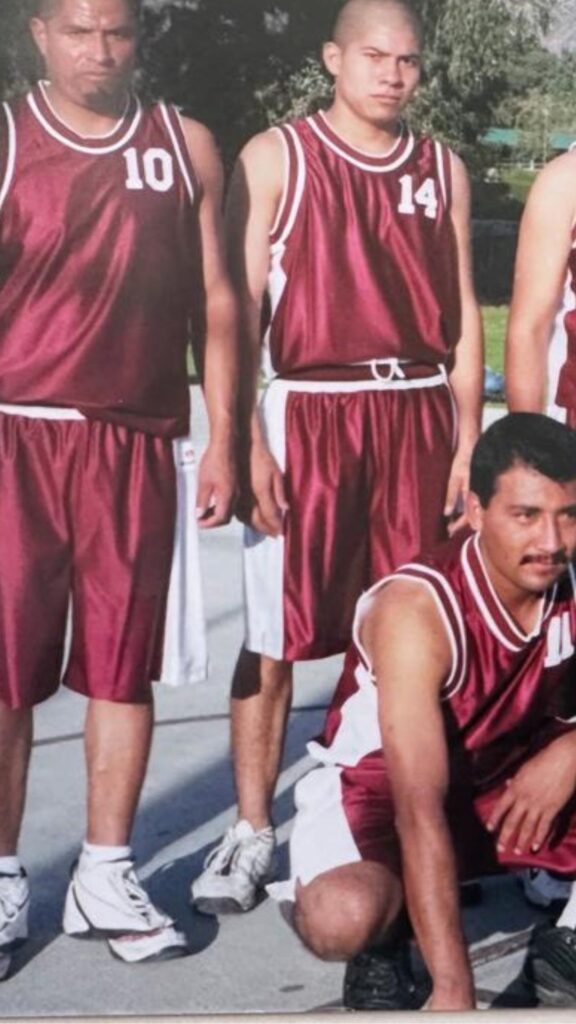
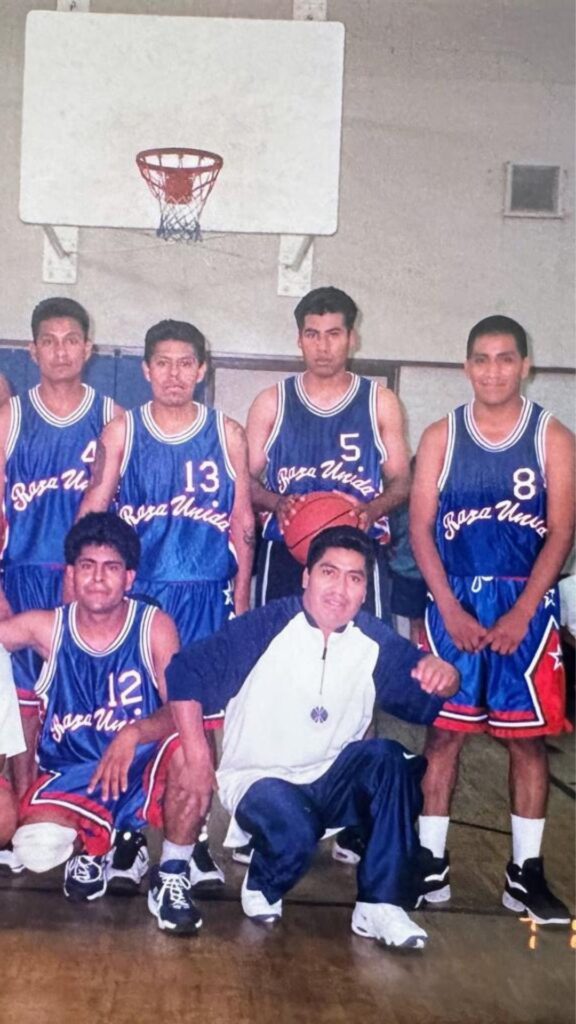
the human spirit can triumph over the most entrenched traditions.
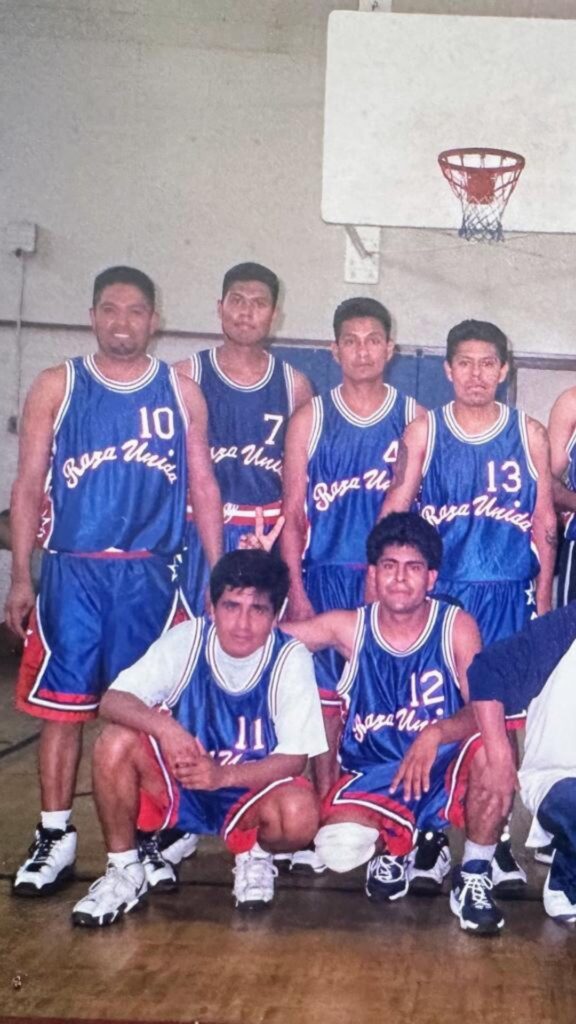
As the tournament unfurls, the narrative weaves back to the roots of Luna, one of the oldest teams in the L.A. area. Fidencio Luna’s journey from a woodcutting village in Sierra Juarez to the bustling streets of L.A. encapsulates the evolution of the Oaxacan basketball scene. From dirt courts with makeshift balls to mastering the fast break on the polished courts of L.A., Luna’s story mirrors the broader narrative of a community finding its place in a new world.
In the face of adversity, Raza Unida’s success emerges not just as a basketball triumph but as a beacon of unity and hope.
The court becomes a melting pot where differences dissolve, and shared passion takes precedence over deep-seated prejudices. As Zeus and his team stand at the precipice of the Thanksgiving Tournament, the stakes are high – not just for the players but for the community they represent. The tournament is more than a showcase of basketball prowess; it’s a celebration of overcoming divides, fostering unity, and proving that, on the court and beyond, the human spirit can triumph over the most entrenched traditions.
